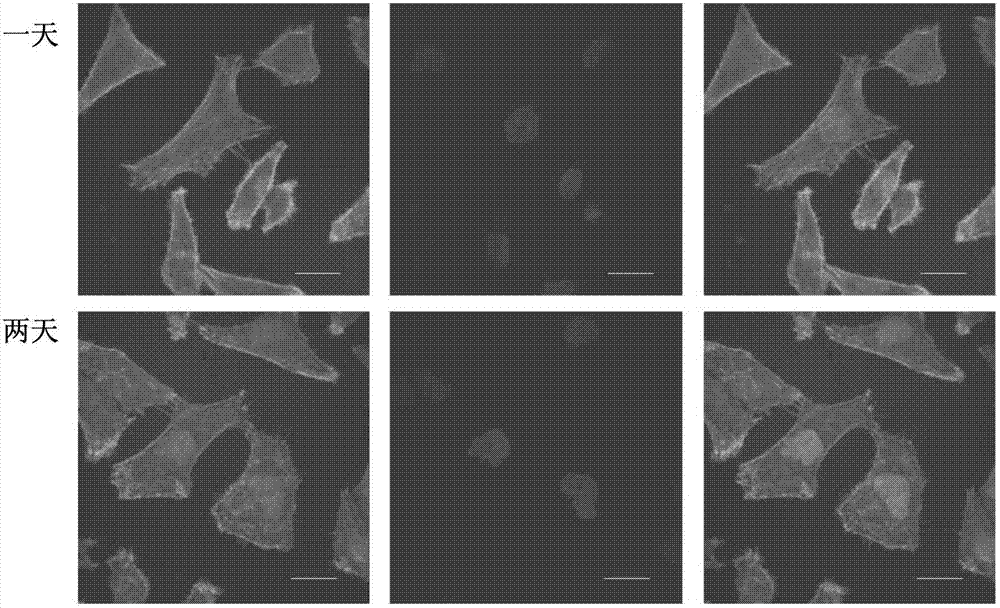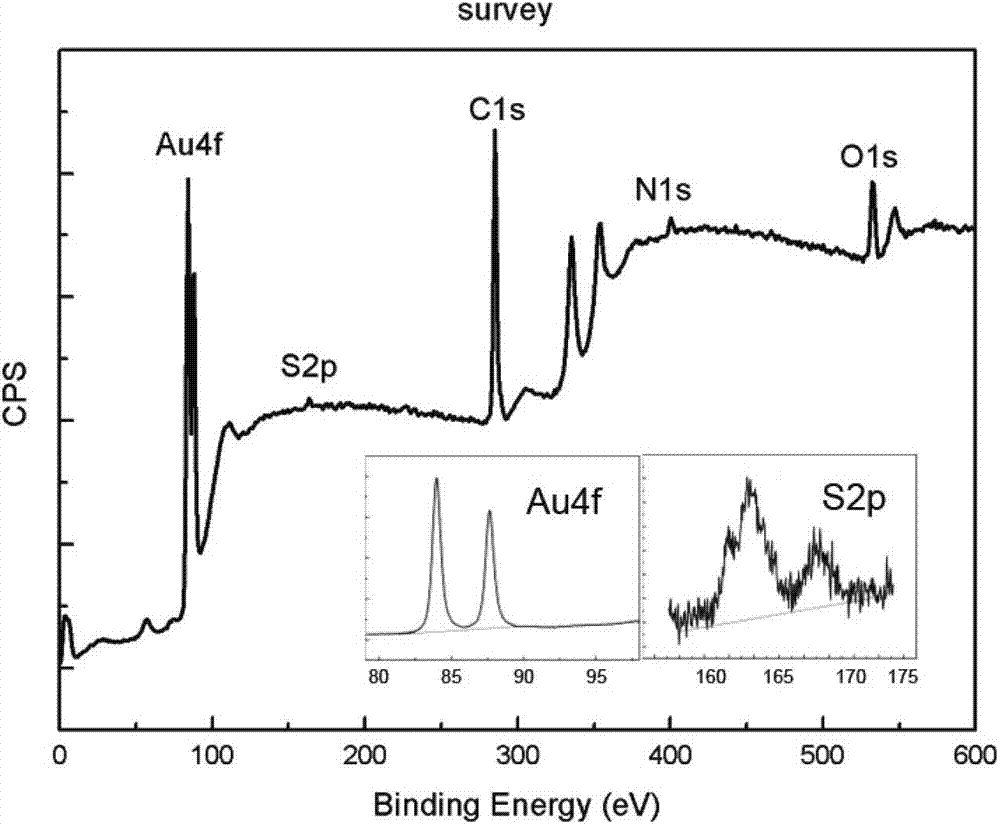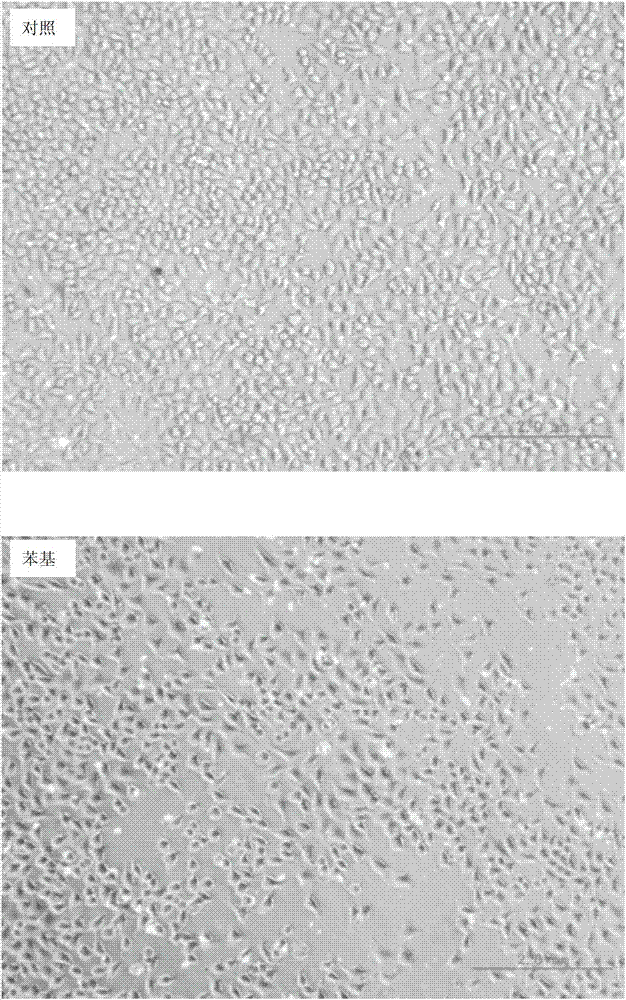Phenyl modified material for inhibiting cancer cell proliferation
A technology for modifying materials and phenyl groups, applied in the field of phenyl-modified materials, can solve the problems of unsatisfactory treatment effect, postoperative complications, recurrence, and more metastasis.
- Summary
- Abstract
- Description
- Claims
- Application Information
AI Technical Summary
Problems solved by technology
Method used
Image
Examples
Embodiment 1
[0027] Embodiment 1, preparation phenyl modified material
[0028] 1) With phenyl-containing mercaptan [molecular formula is C 6 h 6 (CH 2 ) 8 SH] as the solute, absolute ethanol as the solvent, seal and shake well, prepare a thiol solution with a mass concentration of 1.0%, and keep away from light throughout. Stand at 4°C for 24h to make the thiol molecules evenly distributed in the solution.
[0029] 2) Clean the monocrystalline silicon (Si,100) sheet twice in a mixture of concentrated sulfuric acid (mass concentration 98%) and hydrogen peroxide (mass concentration 50%) with a volume ratio of 3:1, and then wash it with triple distilled water for 3 times. Next, dry and seal them under a nitrogen environment. Put the cleaned single crystal silicon wafer into the vacuum chamber of the plasma sputtering equipment, turn on the titanium source, grow a titanium (Ti) transition layer (thickness is 10nm); finally turn off the titanium source, turn on the gold source, on the tit...
Embodiment 2
[0033] Embodiment 2, the in vitro cell test of the effect of phenyl modified material and cancer cells
[0034] 1) Put the 1.0cm×1.0cm phenyl-modified material (prepared in Example 1) into a 24-well plate after sterilization, add breast cancer cells, 10 4 cells / well and placed in a 37°C incubator until the cells adhered to the wall.
[0035] 2) Qualitative observation: Electron microscope detection to record the adhesion and proliferation of breast cancer cells.
[0036] 3) Quantitative detection: Real-time quantitative PCR to detect the expression of estrogen receptor 2 gene (ESR2), migration and proliferation-related genes (Snaill, Cyclln) in breast cancer cells.
[0037] Research object: human breast cancer epithelial cells (MCF-7). This cancer cell line was positive for the Wnt7h gene.
[0038] The result is as follows:
[0039] 1. Adhesion result
[0040] The gold flakes grafted with phenyl chemical functional groups were cut into slices with a side length of 1.0 cm,...
PUM
 Login to View More
Login to View More Abstract
Description
Claims
Application Information
 Login to View More
Login to View More - R&D
- Intellectual Property
- Life Sciences
- Materials
- Tech Scout
- Unparalleled Data Quality
- Higher Quality Content
- 60% Fewer Hallucinations
Browse by: Latest US Patents, China's latest patents, Technical Efficacy Thesaurus, Application Domain, Technology Topic, Popular Technical Reports.
© 2025 PatSnap. All rights reserved.Legal|Privacy policy|Modern Slavery Act Transparency Statement|Sitemap|About US| Contact US: help@patsnap.com



